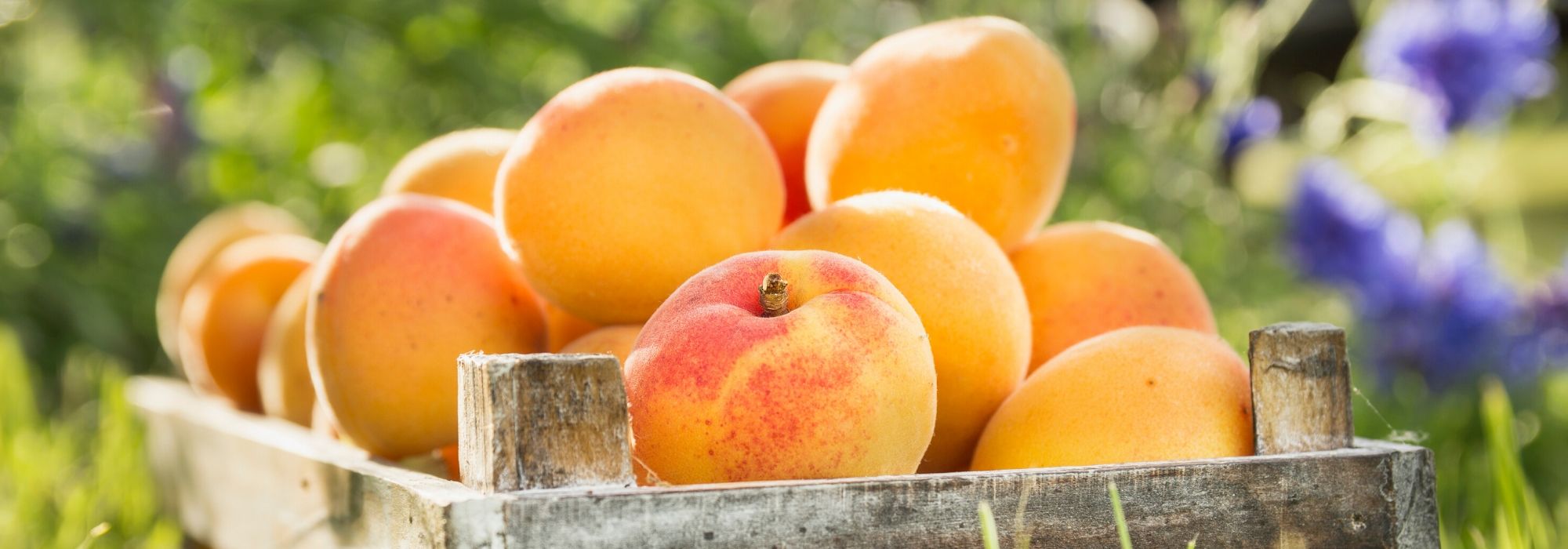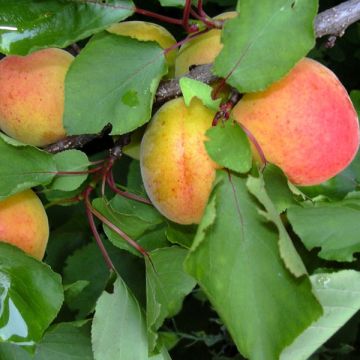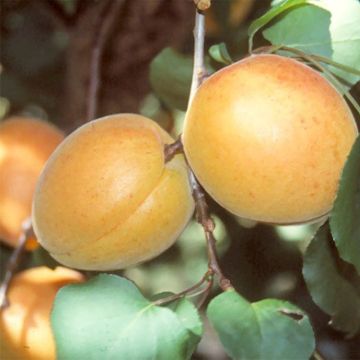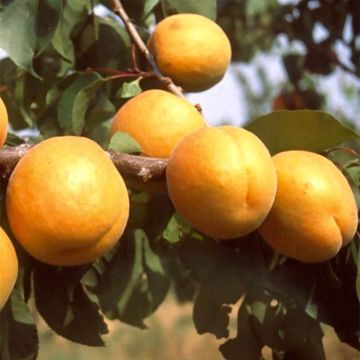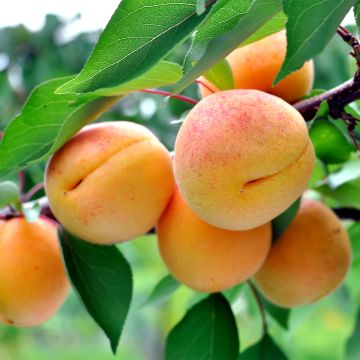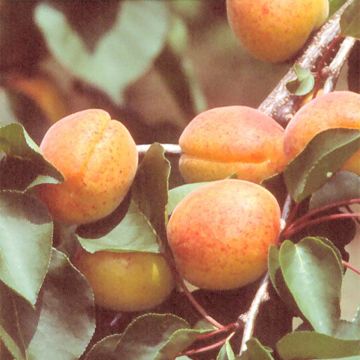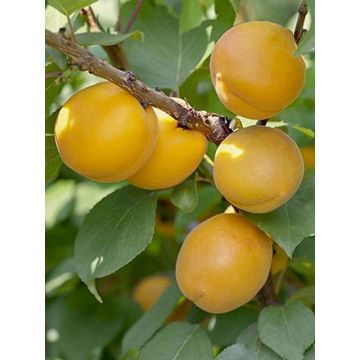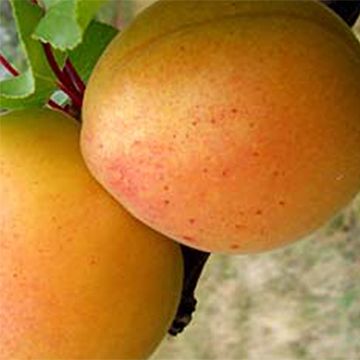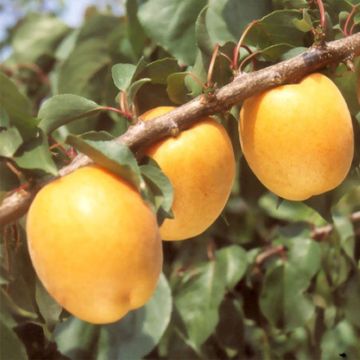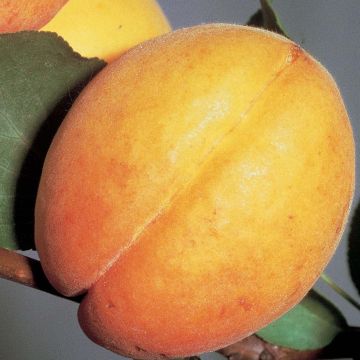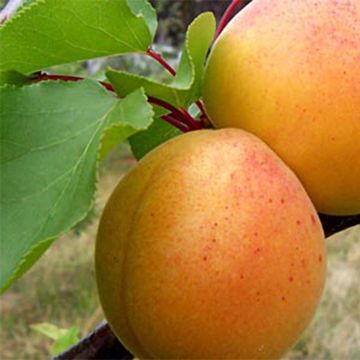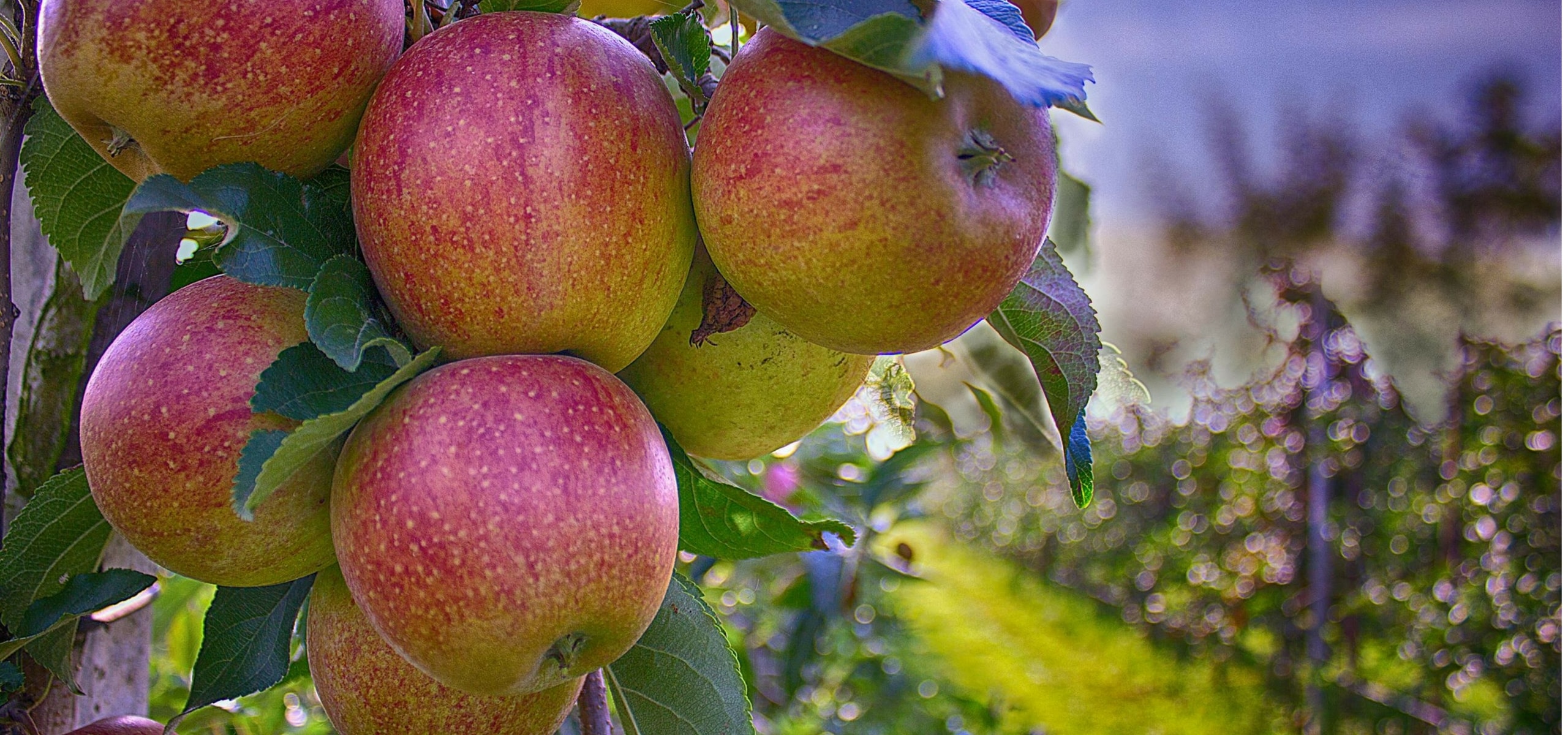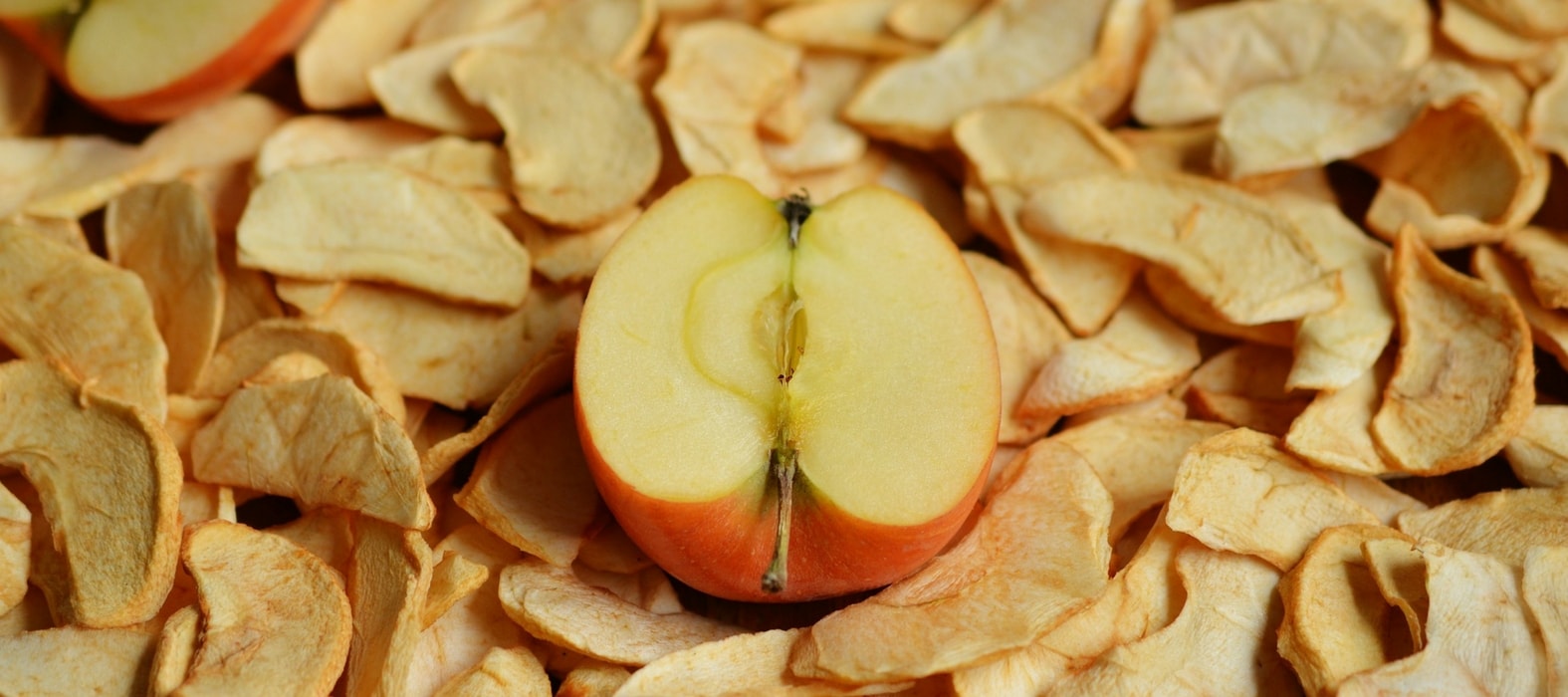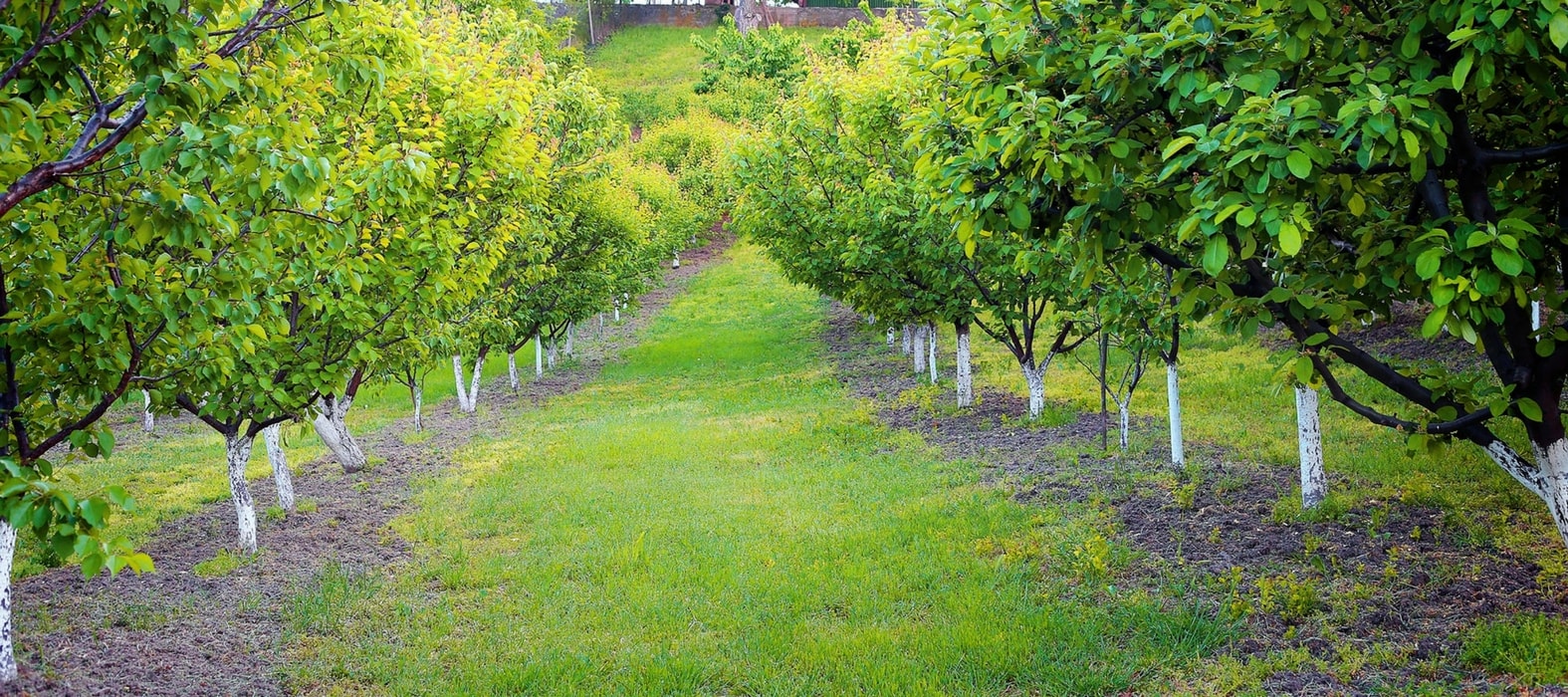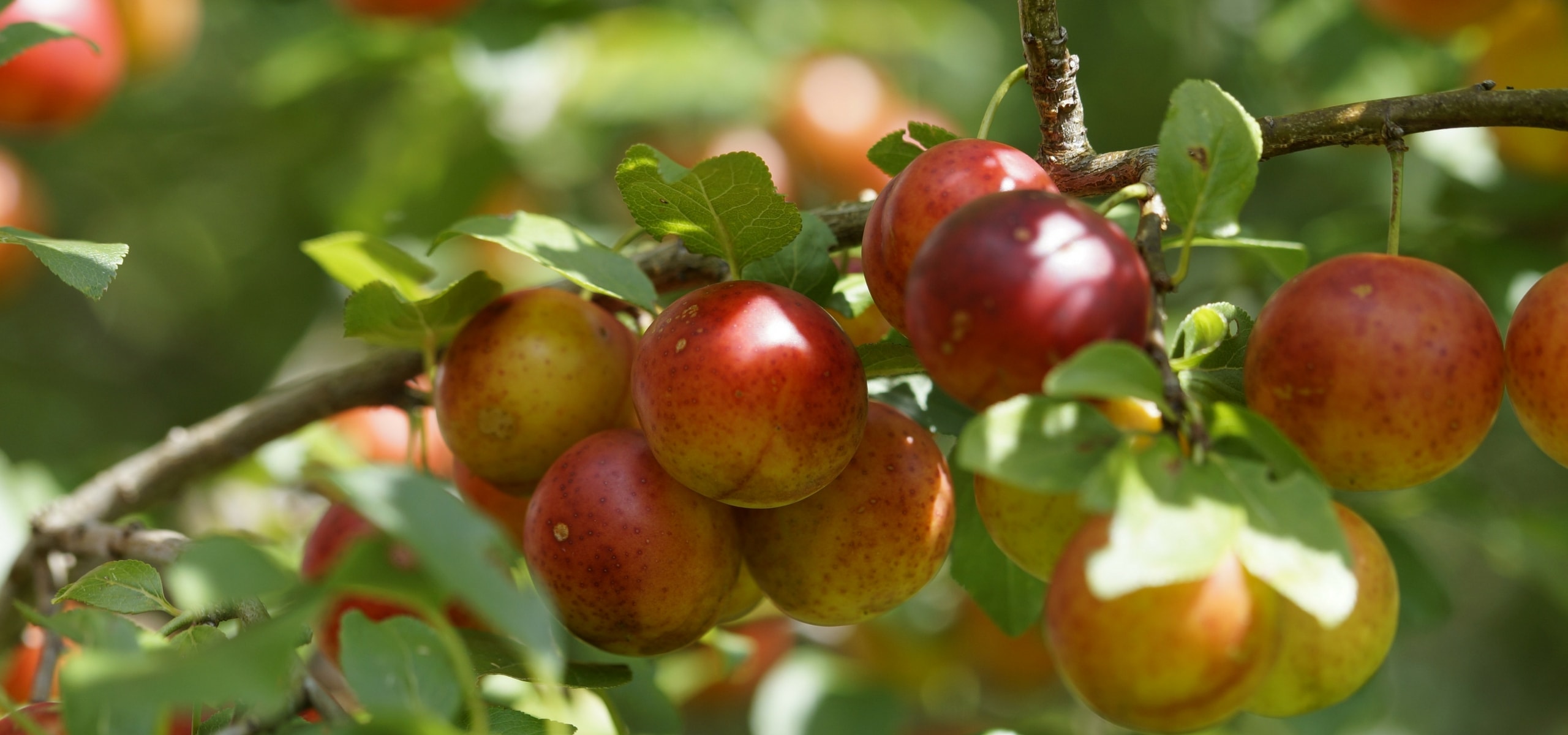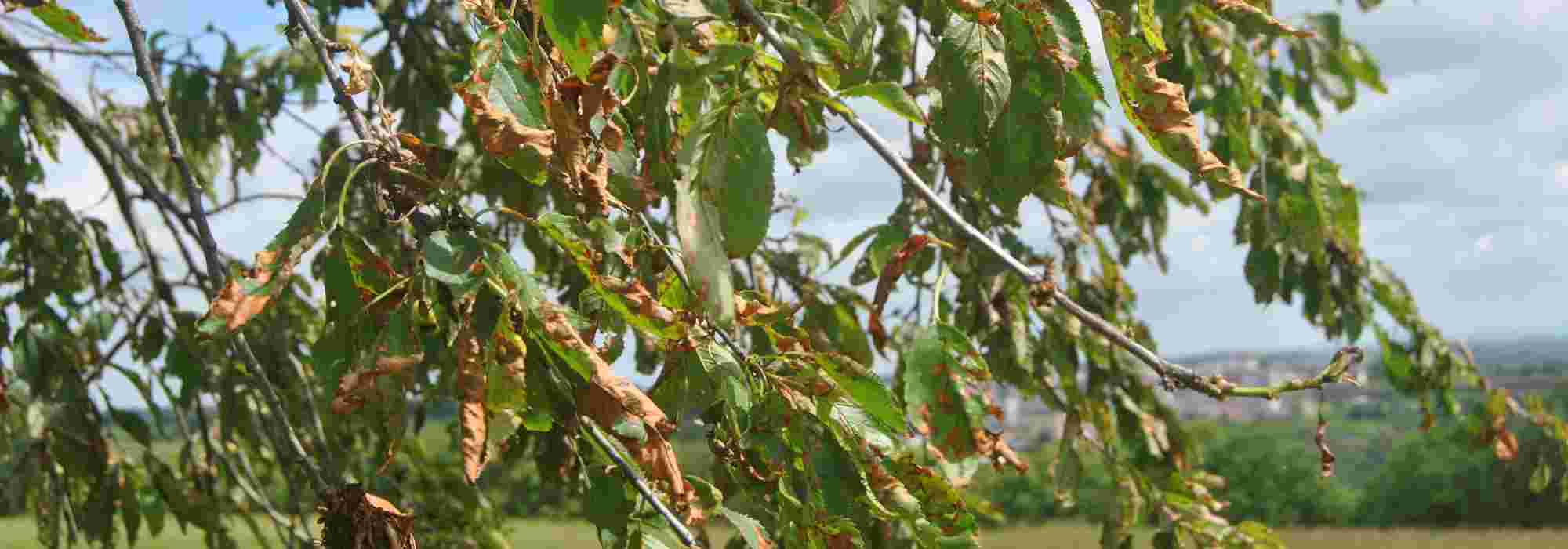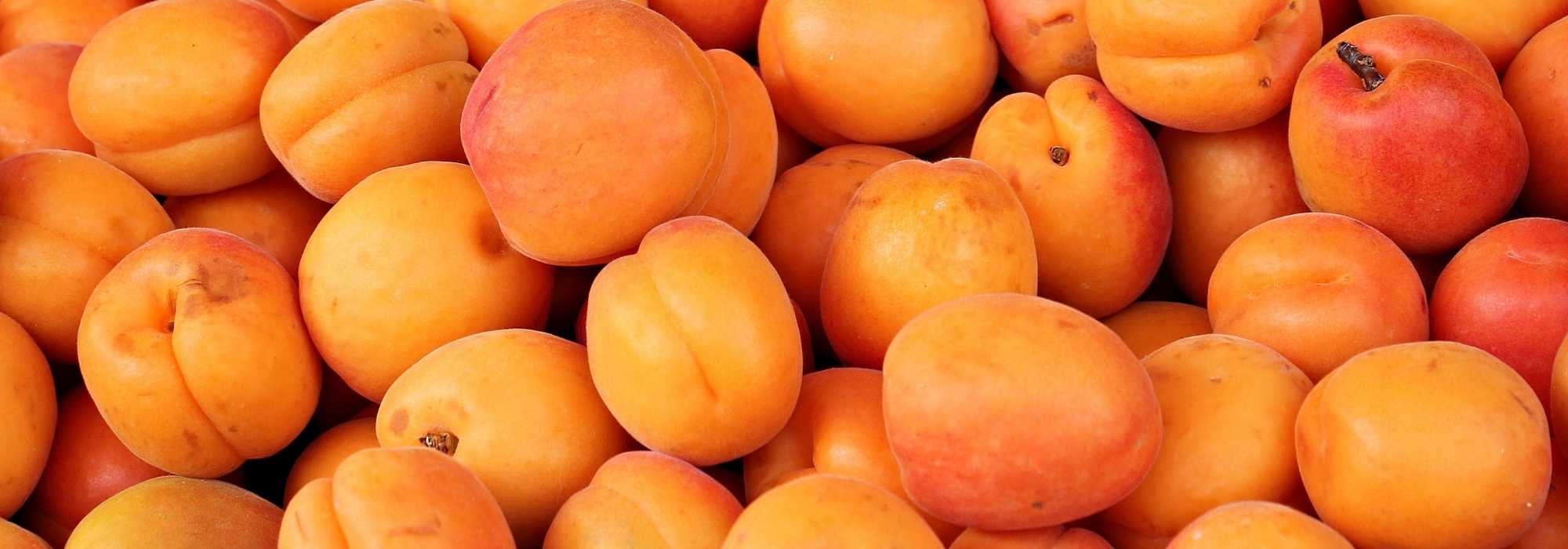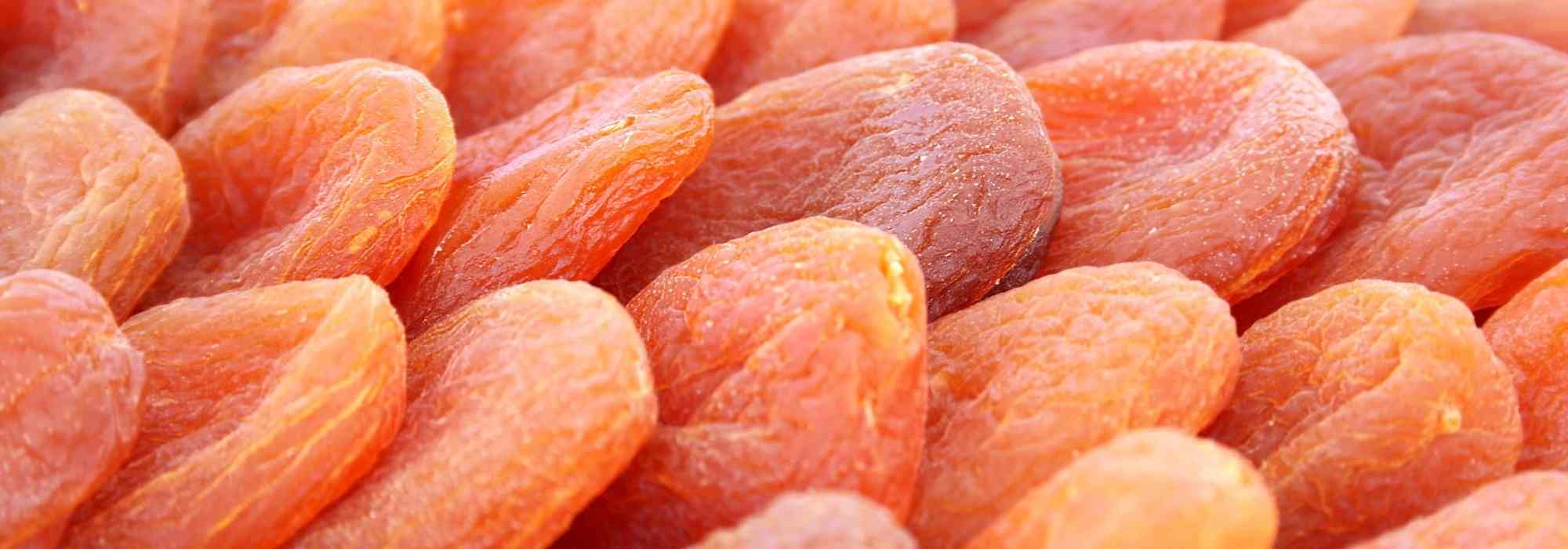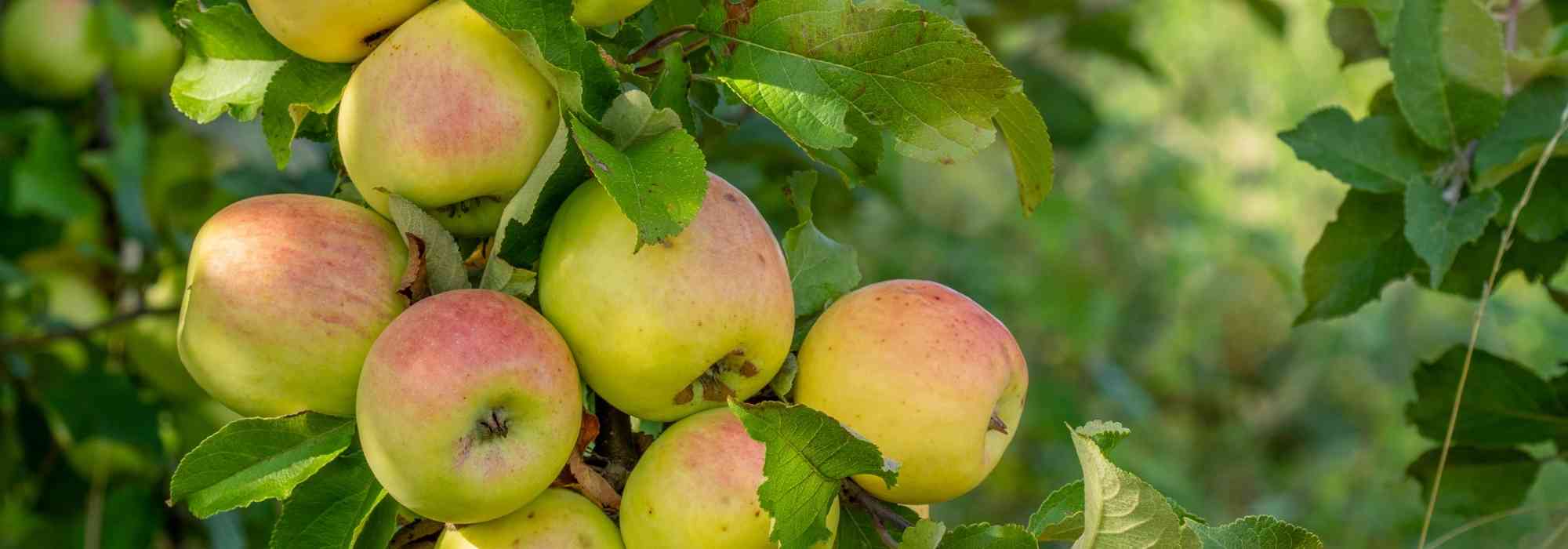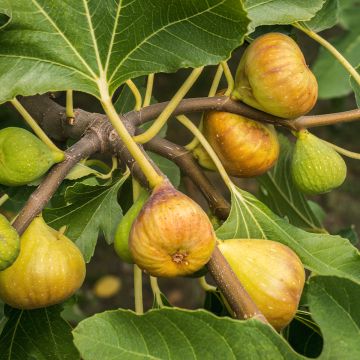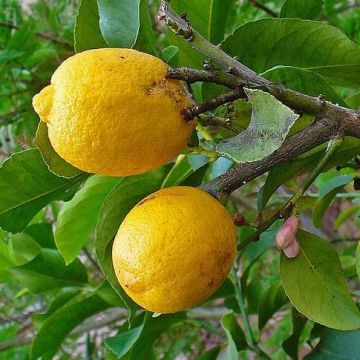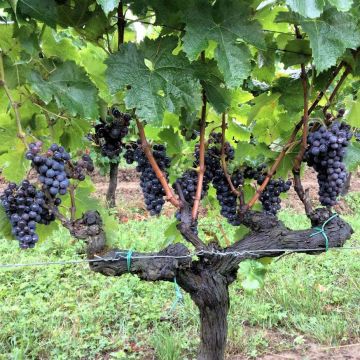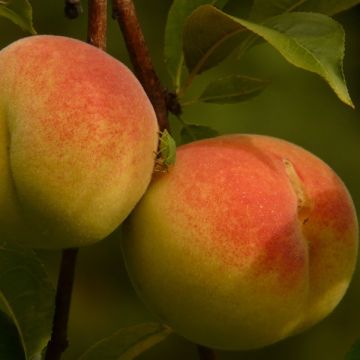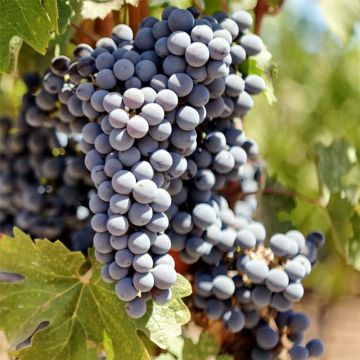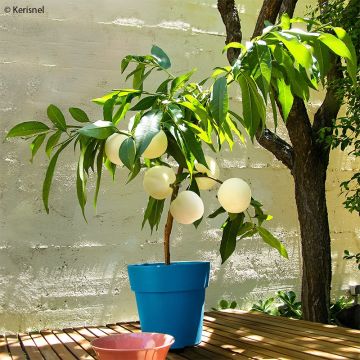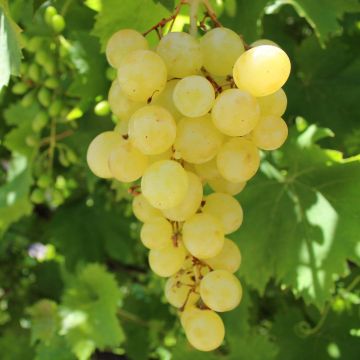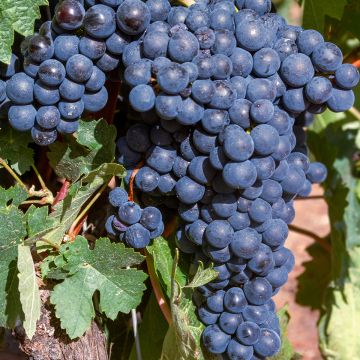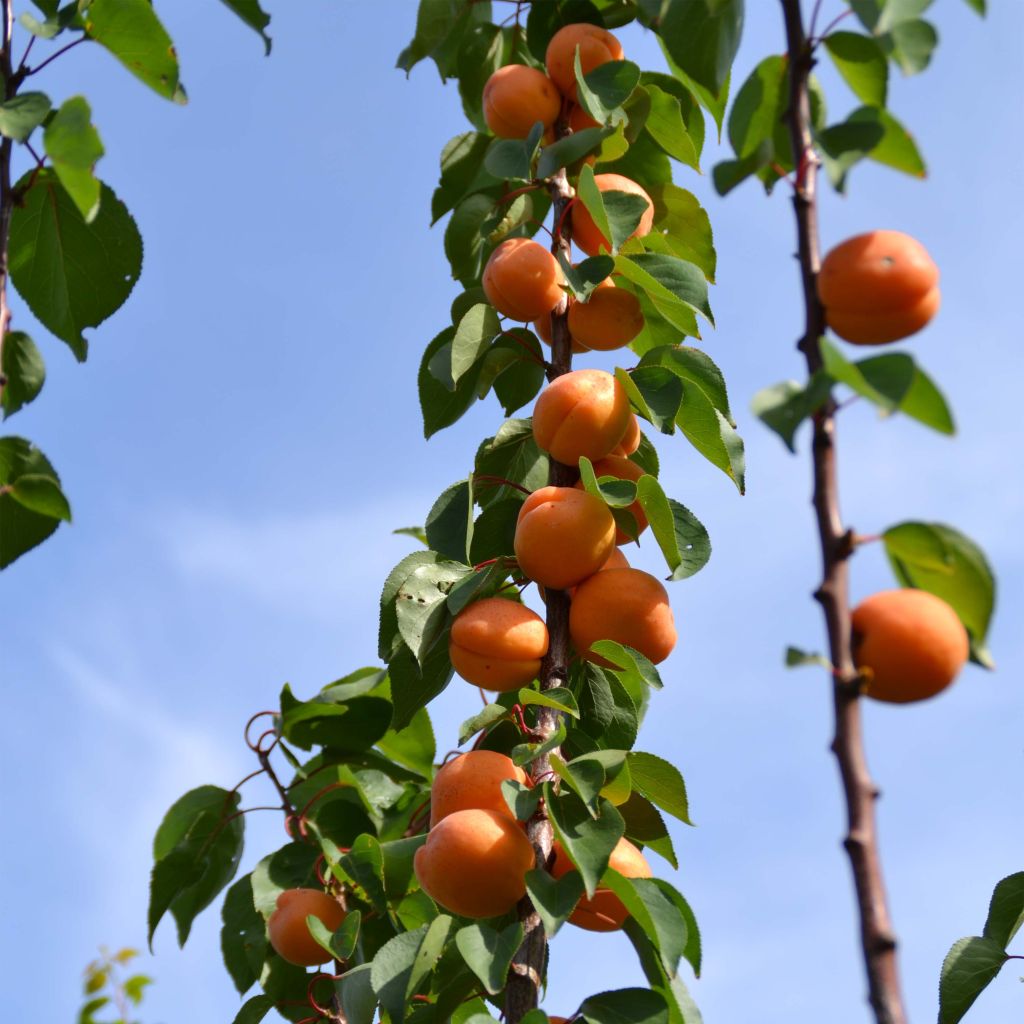

Prunus armeniaca Rustique Des Pyrénées - Apricot Tree
Prunus armeniaca Rustique Des Pyrénées - Apricot Tree
Prunus armeniaca Rustique Des Pyrénées® bourquin
Apricot
livraison avec plusieurs jours de retard en rapport avec celle prévue, deux grosses branches cassées sur un des deux abricotiers malgré un bon emballage. A qui la responsabilité, expéditeur ou livreur? quelque peu déçu pour une première commande.
Patrice, 06/12/2023
Special offer!
Receive a €20 voucher for any order over €90 (excluding delivery costs, credit notes, and plastic-free options)!
1- Add your favorite plants to your cart.
2- Once you have reached €90, confirm your order (you can even choose the delivery date!).
3- As soon as your order is shipped, you will receive an email containing your voucher code, valid for 3 months (90 days).
Your voucher is unique and can only be used once, for any order with a minimum value of €20, excluding delivery costs.
Can be combined with other current offers, non-divisible and non-refundable.
Home or relay delivery (depending on size and destination)
Schedule delivery date,
and select date in basket
This plant carries a 6 months recovery warranty
More information
We guarantee the quality of our plants for a full growing cycle, and will replace at our expense any plant that fails to recover under normal climatic and planting conditions.
Description
Prunus armeniaca 'Bourquin' is a self-fertile variety with a spreading flowering habit that enables it to withstand spring frosts without too much damage. It can therefore be grown in many regions. The apricots ripen in August, displaying a beautiful uniform orange colour. They have sweet and fragrant flesh.
The apricot tree is native to Central and Eastern Asia. It has been cultivated in China since 3,000 BC. Prunus armeniaca was introduced to the Mediterranean basin from Armenia, hence its name.
'Bourquin' was selected by the Georges Delbard nursery. It is a recent variety that has the advantage of a spreading flowering habit, which enables it to withstand destructive spring frosts. It was developed in mountainous regions. This vigorous and hardy variety will bear a good number of fruits, but it will take at least 3 or 4 years to start producing. Flowering occurs throughout spring. The apricots are harvested in August. They are medium-size and are covered with smooth, uniform orange skin that blushes slightly when ripe. They have sweet, light-coloured, and fragrant flesh. Most apricot trees are self-fertile, so they do not require the presence of another variety, although cross-pollination is always more effective. A sunny location, protected from winds and facing south, will encourage fruiting. The flowering is carried on the previous year's branches, so pruning should be kept to a minimum.
Apricots are consumed fresh or dried. They can be used in jams, tarts, and compotes, or preserved in syrup. They are also found in savoury dishes. Apricot juice is often mixed with a touch of peach juice to balance the natural acidity of the apricot.
For transportation reasons, our tallest scions may be pruned before shipment. They are suitable for all common training methods: cordons, espaliers, goblets, half-standards, and low standards. They are not suitable for high standards. Please contact us if you would like more information or advice on training your fruit trees.
This fruit tree is delivered in a ready-to-plant root ball. The root ball should be planted as it is. The biodegradable cover that surrounds the root ball and preserves the rootlets will decompose on its own during the plant's growth. Leaving this cover in place will ensure better establishment.
Prunus armeniaca Rustique Des Pyrénées - Apricot Tree in pictures
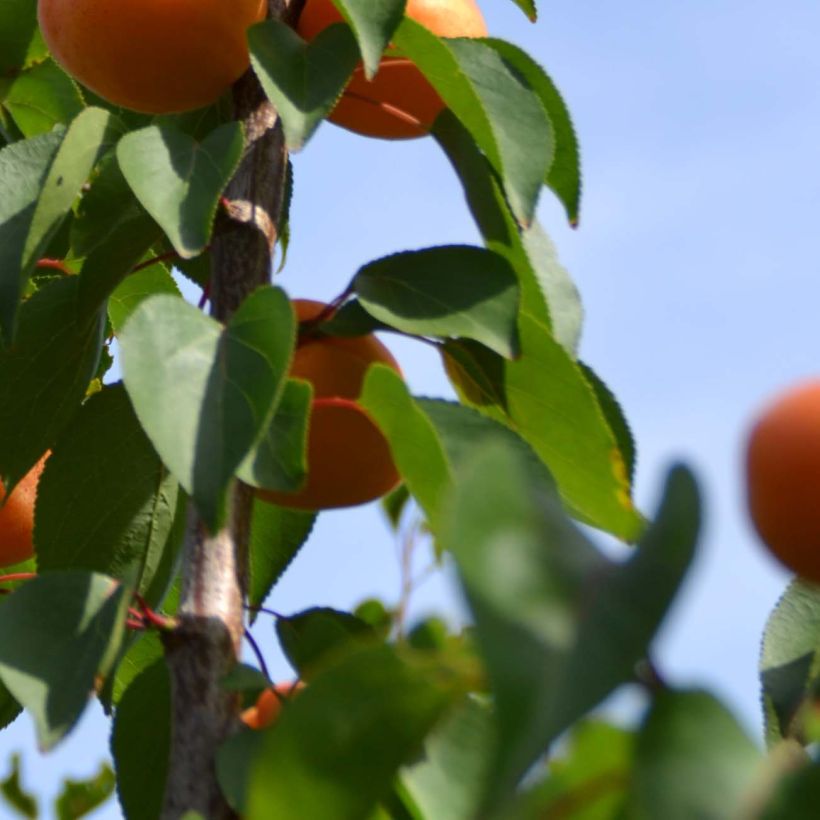

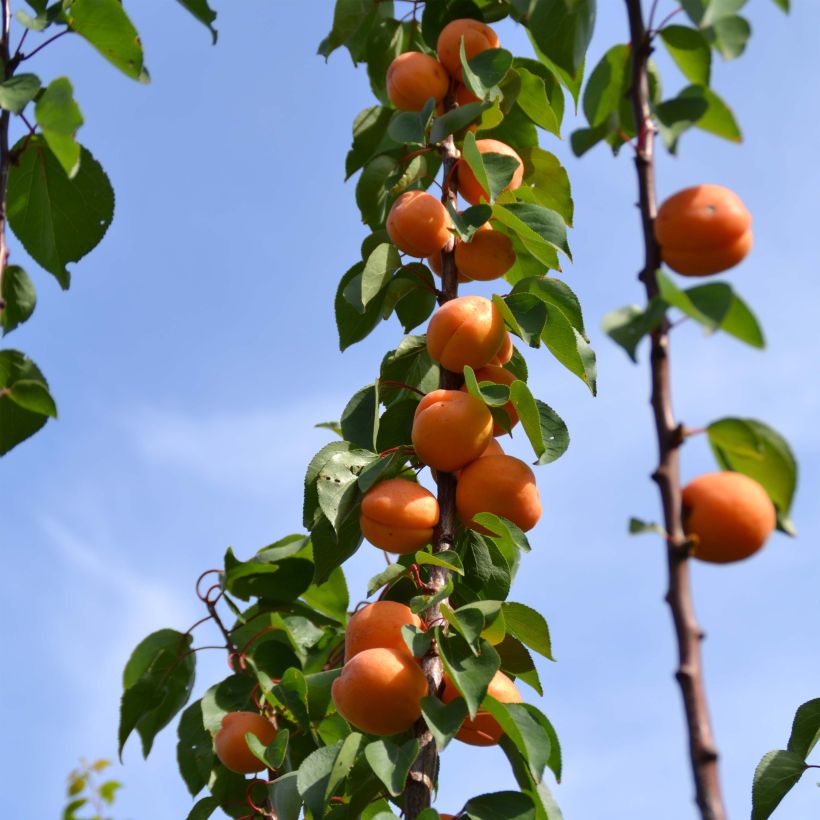

Plant habit
Fruit
Flowering
Foliage
Botanical data
Prunus
armeniaca
Rustique Des Pyrénées® bourquin
Rosaceae
Apricot
Cultivar or hybrid
Myrobolan (Ready-to-plant root ball - Goblet)
Other Apricot trees
View all →Planting and care
Ideally, plant at the beginning of winter, when the tree is in vegetative rest. Plant before the frosts arrive. If you want to plant several apricot trees, space them at least 1.5m (5ft) apart. Dig a hole two to three weeks before planting. The hole should be twice as wide and deep as the pot. On the day, place the tree with its pot in a basin of water to moisten the entire root ball by capillarity. Place compost at the bottom of the hole. Place the tree in the hole and fill with a mixture of soil and potting soil. Firmly tamp down at the base. The root ball should be completely covered. Water thoroughly.
'Bourquin' is not demanding on the type of soil. It will thrive in rich, light, moist but well-drained soil. It does not tolerate stagnant water. Plant it in a sunny location, sheltered from north and east winds.
Planting period
Intended location
Care
Planting & care advice
-
, onOrder confirmed
Reply from on Promesse de fleurs
Similar products
Haven't found what you were looking for?
Hardiness is the lowest winter temperature a plant can endure without suffering serious damage or even dying. However, hardiness is affected by location (a sheltered area, such as a patio), protection (winter cover) and soil type (hardiness is improved by well-drained soil).

Photo Sharing Terms & Conditions
In order to encourage gardeners to interact and share their experiences, Promesse de fleurs offers various media enabling content to be uploaded onto its Site - in particular via the ‘Photo sharing’ module.
The User agrees to refrain from:
- Posting any content that is illegal, prejudicial, insulting, racist, inciteful to hatred, revisionist, contrary to public decency, that infringes on privacy or on the privacy rights of third parties, in particular the publicity rights of persons and goods, intellectual property rights, or the right to privacy.
- Submitting content on behalf of a third party;
- Impersonate the identity of a third party and/or publish any personal information about a third party;
In general, the User undertakes to refrain from any unethical behaviour.
All Content (in particular text, comments, files, images, photos, videos, creative works, etc.), which may be subject to property or intellectual property rights, image or other private rights, shall remain the property of the User, subject to the limited rights granted by the terms of the licence granted by Promesse de fleurs as stated below. Users are at liberty to publish or not to publish such Content on the Site, notably via the ‘Photo Sharing’ facility, and accept that this Content shall be made public and freely accessible, notably on the Internet.
Users further acknowledge, undertake to have ,and guarantee that they hold all necessary rights and permissions to publish such material on the Site, in particular with regard to the legislation in force pertaining to any privacy, property, intellectual property, image, or contractual rights, or rights of any other nature. By publishing such Content on the Site, Users acknowledge accepting full liability as publishers of the Content within the meaning of the law, and grant Promesse de fleurs, free of charge, an inclusive, worldwide licence for the said Content for the entire duration of its publication, including all reproduction, representation, up/downloading, displaying, performing, transmission, and storage rights.
Users also grant permission for their name to be linked to the Content and accept that this link may not always be made available.
By engaging in posting material, Users consent to their Content becoming automatically accessible on the Internet, in particular on other sites and/or blogs and/or web pages of the Promesse de fleurs site, including in particular social pages and the Promesse de fleurs catalogue.
Users may secure the removal of entrusted content free of charge by issuing a simple request via our contact form.
The flowering period indicated on our website applies to countries and regions located in USDA zone 8 (France, the United Kingdom, Ireland, the Netherlands, etc.)
It will vary according to where you live:
- In zones 9 to 10 (Italy, Spain, Greece, etc.), flowering will occur about 2 to 4 weeks earlier.
- In zones 6 to 7 (Germany, Poland, Slovenia, and lower mountainous regions), flowering will be delayed by 2 to 3 weeks.
- In zone 5 (Central Europe, Scandinavia), blooming will be delayed by 3 to 5 weeks.
In temperate climates, pruning of spring-flowering shrubs (forsythia, spireas, etc.) should be done just after flowering.
Pruning of summer-flowering shrubs (Indian Lilac, Perovskia, etc.) can be done in winter or spring.
In cold regions as well as with frost-sensitive plants, avoid pruning too early when severe frosts may still occur.
The planting period indicated on our website applies to countries and regions located in USDA zone 8 (France, United Kingdom, Ireland, Netherlands).
It will vary according to where you live:
- In Mediterranean zones (Marseille, Madrid, Milan, etc.), autumn and winter are the best planting periods.
- In continental zones (Strasbourg, Munich, Vienna, etc.), delay planting by 2 to 3 weeks in spring and bring it forward by 2 to 4 weeks in autumn.
- In mountainous regions (the Alps, Pyrenees, Carpathians, etc.), it is best to plant in late spring (May-June) or late summer (August-September).
The harvesting period indicated on our website applies to countries and regions in USDA zone 8 (France, England, Ireland, the Netherlands).
In colder areas (Scandinavia, Poland, Austria...) fruit and vegetable harvests are likely to be delayed by 3-4 weeks.
In warmer areas (Italy, Spain, Greece, etc.), harvesting will probably take place earlier, depending on weather conditions.
The sowing periods indicated on our website apply to countries and regions within USDA Zone 8 (France, UK, Ireland, Netherlands).
In colder areas (Scandinavia, Poland, Austria...), delay any outdoor sowing by 3-4 weeks, or sow under glass.
In warmer climes (Italy, Spain, Greece, etc.), bring outdoor sowing forward by a few weeks.






























